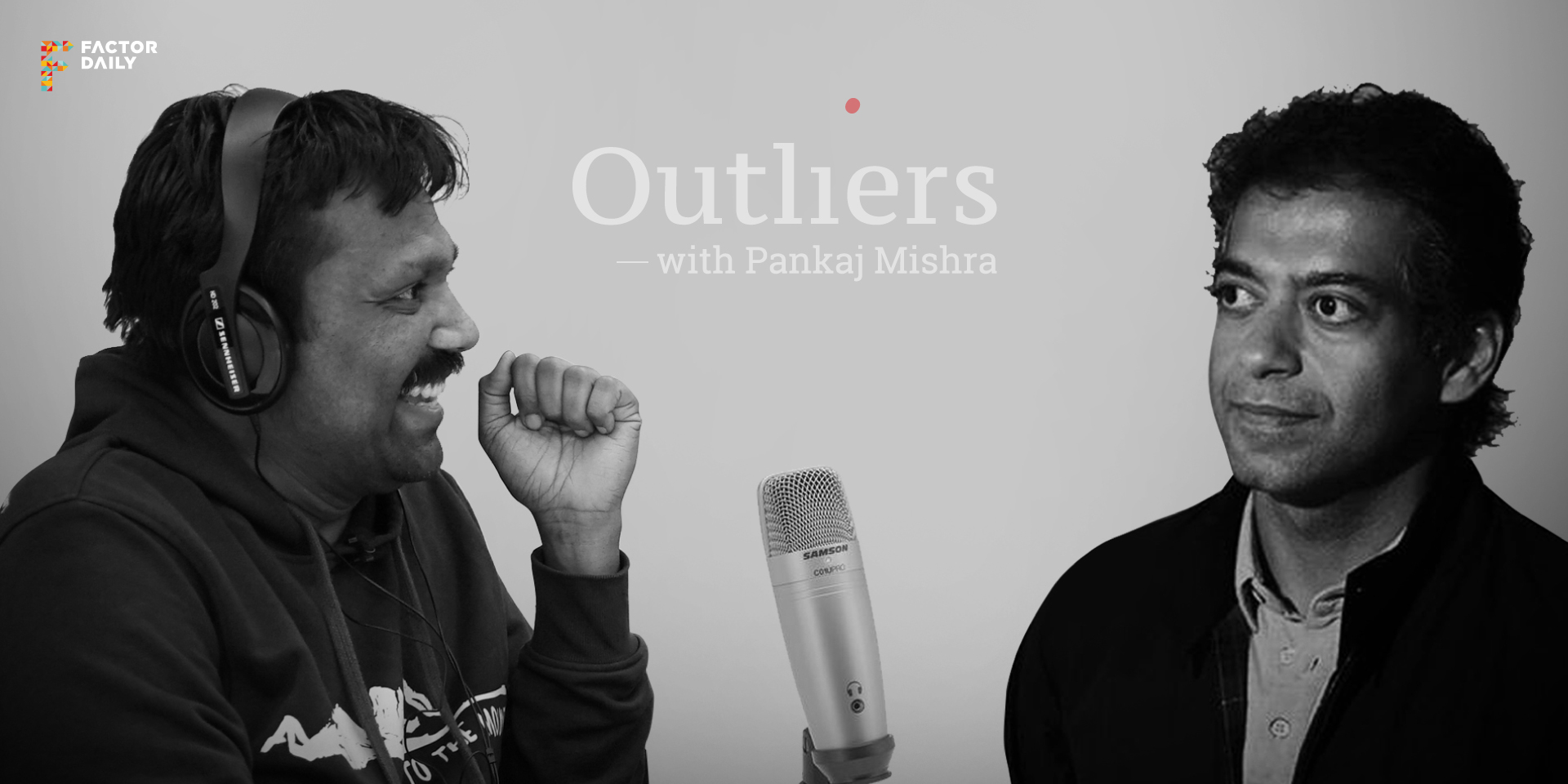For Naval Ravikant, entrepreneurship has been a long, slow burn of several startup failures since 1999, when he started the consumer review site Epinions. AngelList, Ravikant’s biggest startup success, was launched in 2010 after a decade of struggles. AngelList established him among the most influential names in Silicon Valley, as hundreds of thousands of investors and early founders connected on the platform, transacting with each other transparently. He was an early seed investor in companies such as Uber and Twitter.
Getting him to record the Outliers podcast was a long, slow burn too, and it took some hard chase since August last year. Finally, he got on a call on February 10, for an almost hour-long conversation.
Ravikant now sounds like a monk, sharing philosophical life lessons based on his own entrepreneurial journey and his observation of several founders and investors over the years
Ravikant now sounds like a monk, sharing philosophical life lessons based on his own entrepreneurial journey and his observation of several founders and investors over the years.
Here are the top five insights from the several life lessons and practical insights he shared on being a founder:
1. Don’t get attached to outcomes
As an entrepreneur, you’re obsessed about building something and achieving milestones in a time-bound manner. The attachment with your own startup idea can be blinding at times. This is so because, as Ravikant describes, “entrepreneurship is like selling your stories.”
“You’re selling a story to everyone, and every time you sell a story, you sort of trap yourself a little bit more, adding more on your shoulders. You keep taking additional stress every time, and over a long period, it weighs you down,” he says.
So, what does one do?
“One way of detaching yourself (from the outcomes) is to keep reminding that you are gonna die and will leave everything behind”
“Good entrepreneurs don’t get attached to outcomes. It’s easier said than done, because you have to be a Buddhist to get away with something like that,” he adds.
“One way of detaching yourself (from the outcomes) is to keep reminding that you are gonna die and will leave everything behind.”
The other insight from Ravikant about detaching from outcomes is to become more process-oriented, and not goal-oriented. “When you’re process-oriented, you don’t care about goals as much,” he says.
2. Don’t do business networking
If you count the number of times you run into the same people across different startup and technology events, you will realise that maybe it’s not worth it. As Ravikant says, “If you’re building something interesting, you will always have more people wanting to know you than you want to know them.”
He stays away from networking over dinners, conferences. “I draw a complete line between my personal and business life. I don’t go business networking, and any trip to a conference is a road to ruin, according to me,” he says, adding, “I must personally like the people I meet.”
3. Be ruthless about time
“The most important thing we have in life is time. I guarantee you that if you’re a smart entrepreneur, you will die with money in the bank. What you will keep wanting is more time, not money,” says Ravikant.
He adds he’s very ruthless when it comes to time.
“If you’re a smart entrepreneur, you will die with money in the bank. What you will keep wanting is more time, not money”
4. What is work
“The definition of work for me is a set of things you have to do that you don’t want to do,” says Ravikant.
5. Failure first
In the startup world, a lot of glory is attached to entrepreneurial failures. And while it may sound bizarre to traditional businesses, failing is the way of a founder’s life.
“I’ve had far more failures than successes — most of my investments were failures and most of my startups have failed,” says Ravikant.
“Success only comes after you have given up on that. Because it takes so long to be successful at anything”
“The worst part about failures is that they arrive suddenly. Success only comes after you have given up on that. Because it takes so long to be successful at anything,” he adds.
To listen to the previous episodes and subscribe to the Outliers podcast on SoundCloud click here. iTunes users can also click here to subscribe.


